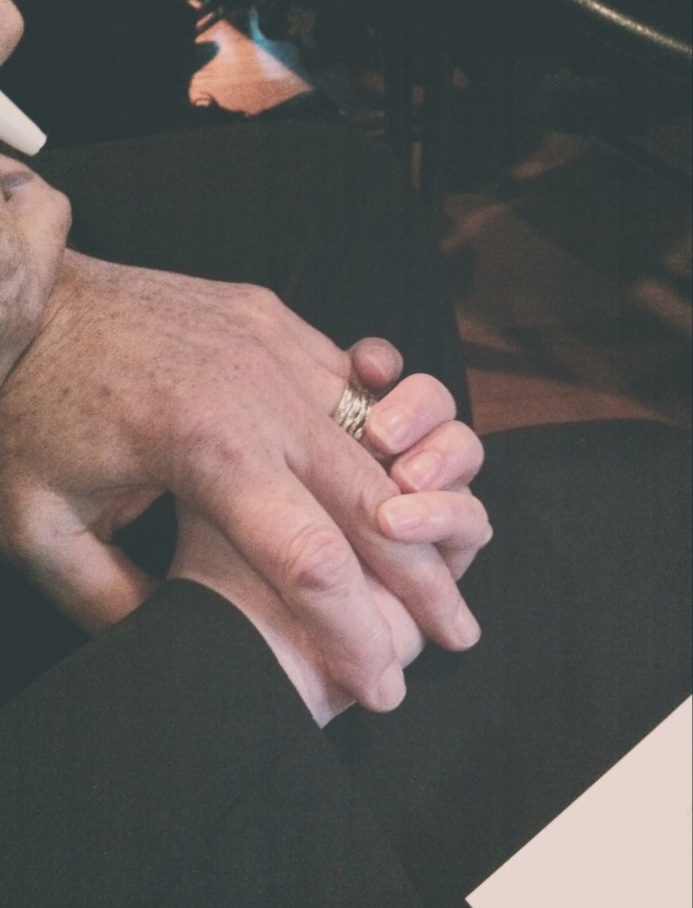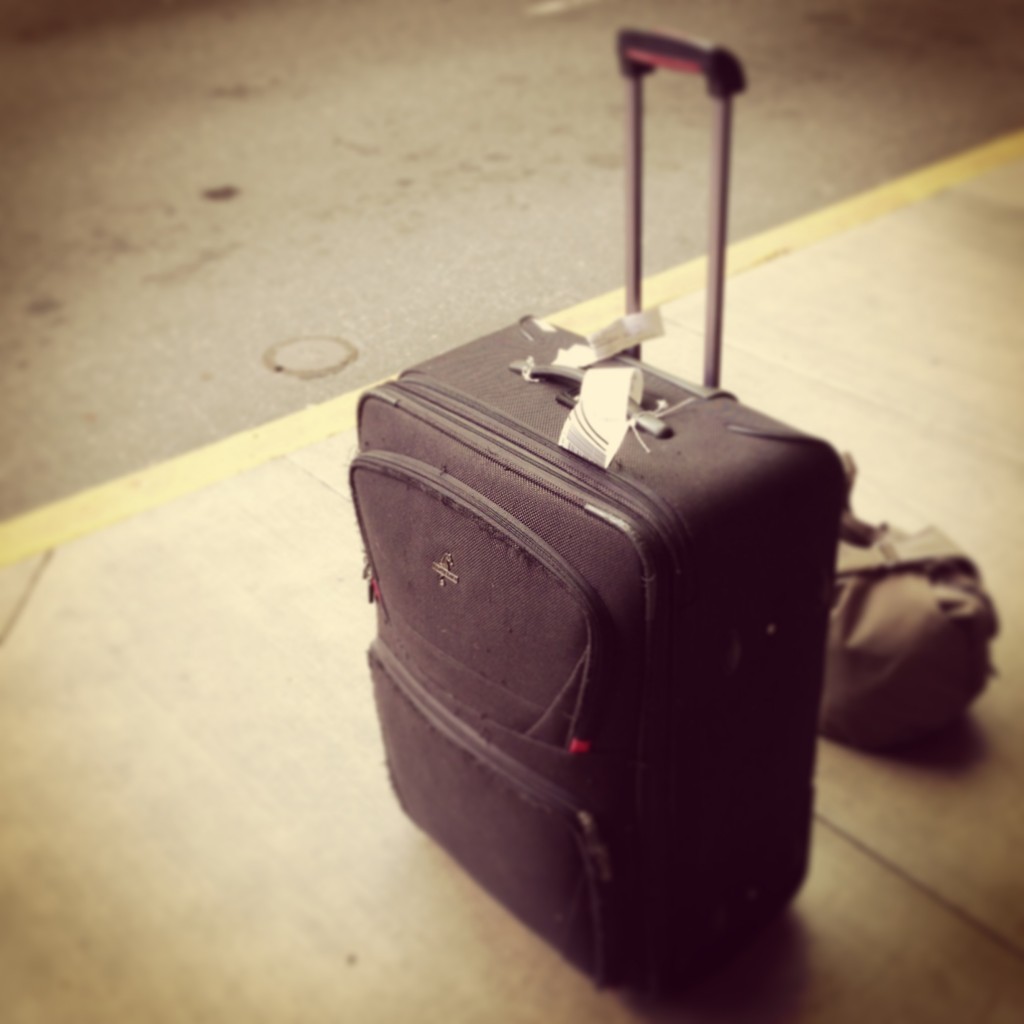Am I safe here? the woman whispered.
She was tall and blonde and classically northern midwestern looking, and had come from just over the Wisconsin border to attend a memoir class I was teaching at The Loft Literary Center in Minneapolis.
Am I safe?
Her voice quavered; strangers — all of us — shook our heads.
Yes.
It was early in November, the day after an epic, divisive moment in time. We were in a beautiful classroom at a remarkable literary center in a lovely city filled with people of every color, religion, and political persuasion. Minneapolis is a place I had long wanted to visit, and to teach at The Loft was a long-held dream of mine, ever since I’d heard Natalie Goldberg talk about it more than twenty-five years ago. And on this morning, sustained by strong coffee and ensconced in a building that at its core is devoted to writers and books and the written word, a small handful of us who had never before set eyes on each other assured this woman that yes, she was safe.
If not here, I said, then where.
I recognized the telltale signs of anxiety that I know so well: for me, it comes from the unshakable certainty that one is unsafe. The nervous shifting, the eyes darting, the foot tapping, the frantic water drinking, the shallow breathing, the coat thrown on and off and on and off. Anything to keep moving, to keep running. For the anxious, stillness and quiet can be as unhinging as a night terror.
Add to this the fact that memoir — the teaching of it, the talking about it, the writing it: the permission, the memories, the emotional fortitude that it takes to plunge deep — is a gnarly bit of business; at best, it’s fraught. At worst, it can make the strongest of us feel ungrounded and unmoored and like our limbs are made of jello. Those of us who write it — who come back to the form over and over again — do so because we can’t not. We do it to uncoil our stories, to know our truths, to understand who we are through the specter of who we, and the people around us, once were.
Am I safe here.
Yes, we said. In my classroom, in my space, you are safe. But step outside into the wide world, and who knows about any of us, at any time.
(I didn’t mention that.)
By the time I arrived in Iowa for my next book event, I was depleted; I felt like an IV bag that had its contents forcibly squeezed out of it. I was shaky and nervous and unsure and exhausted. My writer/chef/restaurateur/publisher/county supervisor/devoted Unitarian friend Kurt picked me up in Cedar Rapids and dropped me off at my hotel, where I tried to nap; I met my writer/journalist/born-and-raised evangelical friend Lyz for lunch. No three people could come from more opposing histories, with more divergent views on everything from politics to religion; in fact, we have more in common than we know. We talked about safety and writing, about division and how to move forward into the unknown in a way that is sustaining and nurturing for all of us, not just some of us. We talked about being ferocious and fierce and kind and devoted to community and family — that those qualities aren’t mutually exclusive — and sitting opposite Lyz, my hands shook as I ate my carrot ginger soup at a lovely little cafe in Iowa City; I couldn’t manage anything more substantial than that.
Look for the helpers, Kurt said to me that night, quoting the late Fred Rogers; it was Kurt’s wife’s birthday and he had cold-smoked a pork shoulder for ten hours, and braised it in lamb stock into which he had sliced a few local Iowa apples. It was an earthy dinner, rooted in place and ground. Another couple — they were much older; we’ve seen it all, they said — came over to join us for Kim’s celebration, and to drink to friendship and safety and sustenance.
Look for the helpers, Kurt kept saying. Remember that.
I returned home from my book tour in early December. A few days later, just as I was beginning to unpack and start work on my next book, Motherland, my mother fell in her apartment. Surgeries. Rehab. A treacherous, bottom line-driven healthcare system designed to fail the people who need it most: its seniors, its children, its poor. What Dickens called, in A Christmas Carol, the surplus population.
What are we going to do, I cried to Susan after sixteen hours in the emergency room, and thirty without sleep. My mother never planned for a catastrophic event; my mother has always assumed it would happen to someone else.
Look for the helpers.
I did, and they were there: phonecalls, emails, advice from people I’ve known from my childhood in sleepaway camp, from my social worker yoga friends, from my neighbors, from a lawyer-turned-food-writer friend with a penchant for spreadsheets and information gathering. Facebook messages flew back and forth, and good wishes and prayers came from places I would have never thought would send them.
Weeks later, Susan and I tried to assemble a Christmas of sorts, with cousins around our table, wine, and simple food; it was a quiet time. The morning after Christmas, we were back in the emergency room, this time with Susan and a kidney stone. Sitting next to her, holding her hand, this person I’ve spent nearly twenty years with, and watching her in such excruciating, withering pain, it felt like it was just us and the world and a universe that was hitting us, repeatedly, with what one of my friends calls the shit stick. Humans are a beautiful, broken, feeble, complicated lot; our minds overtake our bodies. Our bodies overtake our minds. In the last year, I have had three healthy friends younger than I suffer heart attacks; they all survived, one barely. One of my dearest friends had brain surgery after collapsing in an exercise class. Another friend had a hiking accident that easily could have killed her. My cousin was diagnosed with cancer. A friend’s brother was nearly lost in a car accident. We put Addie, our sweet old yellow Lab to sleep in July, the day before Susan’s birthday. Our other dog was diagnosed with cancer; our cat stopped eating. We live in what Anne Lamott once referred to as the waiting room of the emergency ward.
Talking about food — the next great trend; the next cool technique — feels frivolous. How can I cook? How can I nourish myself and the people I love and my community?
How can I eat?
The world spins forward. Together, we lurch into the future, into that place where, now more than ever, we need the nurturing and the sustenance.
At 3:08 am each morning since my mother’s accident, I am catapulted awake; I hear Susan breathing softly next to me and the dog snoring on the floor. This is my home, the place that grounds me, that tethers me to the earth. This is my family.
The alarm will ring in two hours.
My student’s words careen around my Monkey Mind like a broken record.
Am I safe here?
I lay in the silence; I listen to the quiet.
I try to assure myself as I assured her.
You are safe here.
I doze until the sun comes up, and I begin again.






Wow, what a lot of things to have happen in a compressed amount of time! I had to take a deep breath after reading this. Hopefully 2017 is much less eventful for everyone in your family. May it be filled with quiet breaths and the knowledge that you are safe wherever you find yourself.
What a beautiful essay! You captured my anxiety and fear — the uncertainty — the lack of safety I feel every day now. Thank you for giving voice to what so many of us are feeling.
I recognized the Rogers quote immediately. It’s one I sometimes find myself repeating silently, a mantra tethering me to good people. Too often lately it can feel as if gravity forgot to show up, floating, ungrounded. But just in time a friend will call or reach out and I’m safe. Maybe all we can do is remember to show up for each other, even if gravity has forgotten to.
– Jacq
❤️🙏🏻❤️
Dear Elissa
Remember each and every day that you are a gift from God. All else is background music. My love and light to you every day.
I often quote Fred Rogers, “Look for the helpers.” In a particular moment, that is the best we can do. But then we must each work to change a system that is not created for PEOPLE. We must demand that the needs of human beings are being addressed. Clean water, access to health care, education, time to care for one another–these things can be built into an economic system. Our politicians forget that a budget is a moral document. It reflects what we value and support. The pols give away our resources to big corporations that in turn take all resources, protections, and ultimately, dignity, from citizens. We must push back. We must stop supporting things that are not life-enhancing, but are life-sucking. Look to people like NETWORK (“the nuns on the bus”), Penceys Spices, Costco, Target. These are some of the “good guys,” the helpers. Let’s support them, and refuse to capitulate. Each of us does not have to do it alone. Let’s each do a little, what we can do. Let’s be the helpers we will someday need ourselves.
Thank you. I LOVE Nuns on the Bus!
So well caught, that indefinable throat choking fear…too much, too much. But we all go on.
Thank you.
What a beautiful essay. A reminder that all of us encounter our own and our loved one’s fragility at some point. My last few months have found my mother entering hospice and the death of a dear friend. I have been feeling untethered. I wish for connection while at the same time I feel too exhausted to try. Your writing creates that connection. No small feat.
Thank you. Sending wishes for peace.
I just came to your site for the first time after reading your essay in ‘Best Food Writing 2014.’ The timeliness of your words strikes me. I am an Anne Lamott devotee and made a ‘Look for the helpers’ bumper sticker for Christmas gifts last year. Yes, sometimes writing about food or even a personal memoir can feel indulgent, shallow, and vapid. We can take comfort in sharing our own fears, vulnerabilities and experiences with each other in honest ways, just as you have done. Otherwise we feel alone. We feel unsafe. By writing and allowing others to connect like in these comments, we can feel less alone. less unsafe.
Blessings to you and to everyone who can read your words and KNOW the personal truths they uncover.
Sophie in CA
Thank you so much for your kind words- EA
So perfect. Thank you. YES. We are safe here.
{ 1 trackback }